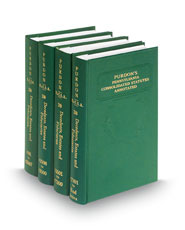
In a two-page final report, the Pennsylvania Criminal Procedural Rules Committee has provided guidance and clarification on the recent amendments to Pa.Rs.Crim.P. 542 and 1003. These rules, adopted as amended by the Pennsylvania Supreme Court in April of last year and put into effect last June, govern the use of hearsay at preliminary hearings. In short, the use of hearsay is allowed in preliminary hearings and its use is not limited to any specific category of offenses.
Rules 542 (Pertaining to Preliminary Hearings in MDJs) and 1003 (Pertaining to Preliminary Hearings in Philadelphia Municipal Court) now provide that “Hearsay as provided by law shall be considered by the issuing authority in determining whether a prima facie case has been established. Hearsay evidence shall be sufficient to establish any element of an offense, including, but not limited to, those requiring proof of the ownership of, non-permitted use of, damage to, or value of property.” By adding the highlighted words in the recent amendment, “including, but not limited to, those,” the Rules lift out of the associated commentary the clear intent of the drafters that hearsay is available to make a prima facie case.
The genesis of the amendments was that, despite the unambiguous language to the contrary within the associated commentary to the Rules, issuing authorities were in some instances reading the language of the second sentence to limit hearsay only to property offenses. This was not what the drafters intended – and was not at all in line with Pennsylvania case law. However, the new language purports to remove any remnant of doubt or confusion regarding the use of hearsay at the preliminary level. However, it does not specifically address the caselaw holding that hearsay cannot be the only evidence presented, and there is a solid argument to be made that such caselaw is still good law in Pennsylvania.
Lastly, the recent amendment also removes the words “including the taking of evidence on summary offenses” from the commentary to Rule 542, language contained in a provision that some argued prevented the taking of proof of a summary offense during a preliminary hearing where it was necessary to sustain a joined misdemeanor or felony (i.e., where a charge of homicide by vehicle first requires proof of an underlying traffic offense).


















Or contact me privately:
steve@fairlielaw.com
(215) 997–1000